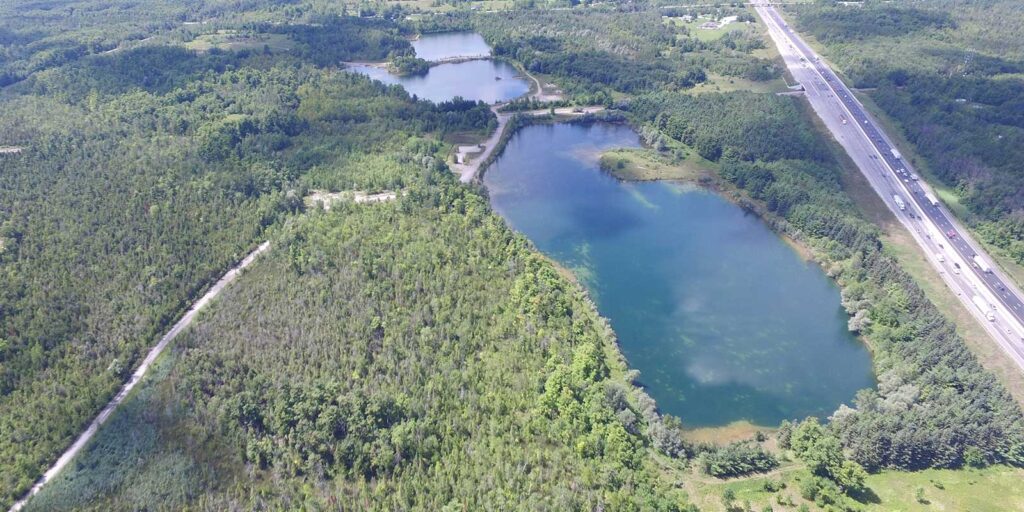Province ignores warnings about threat to the environment, municipal budgets and rule of law
Toronto, Ont. – Today, the Ontario government is forcing the third and final reading of Schedule 3 of Bill 257 – a Planning Act amendment that would give a single Minister nearly unchecked power to authorize virtually any form of development, almost anywhere in the province’s more populated areas. The new law would exempt Minister’s Zoning Orders – a tool that is already being misused at an unprecedented rate – from the Provincial Policy Statement (PPS) which sets the bare minimum standards for all municipal land use planning decisions.
By putting Bill 257 – which is mostly about rural broadband internet – to a final vote with this extraneous ‘poison pill’ still attached, the government is ignoring near-unanimous warnings from the Ontario Federation of Agriculture, the Association of Municipalities of Ontario, environmental NGOs, legal practitioners, and thousands of other Ontarians. Those warnings were about the on-the-ground dangers Schedule 3 of Bill 257 would cause for towns and cities – and the grave threat it poses to the rule of law in Ontario.
“Creating a route to approve developments that violate the Provincial Policy Statement would endanger the public, squander farmland and natural heritage, and saddle municipalities with costly ‘white elephant’ sprawl,” said Phil Pothen, Ontario Environment Program Manager, Environmental Defence.
The on-the-ground danger arises because it is the Provincial Policy Statement Ontarians rely upon to mandate sound planning principles, outlined as follows:
- avoi[ding] development and land use patterns which may cause environmental or public health and safety concerns
- avoiding the destruction of farmland
- efficiently use[ing] land and resources
- minimiz[ing] negative impacts to air quality and climate change, and promot[ing] energy efficiency
- support[ing] active transportation
- Developing and planning [m]ajor facilities and sensitive land uses … to avoid, … effects from odour, noise and other contaminants, [and] minimize risk to public health and safety
- prohibiting the destruction of Provincially Significant Wetlands, Coastal Wetlands, Significant Woodlands, Significant Wildlife Habitat, and Areas of Natural and Scientific Interest
The threat to natural areas is also multiplied because the legislature has already removed the other safeguard against such development. Last December’s Schedule 6 amendments to the Conservation Authorities Act were designed to force Conservation Authorities to permit such destruction even where they know it would put Ontarians in harm’s way from flooding, landslides, or other such environmental hazards.
While the direct application of this legislation is to Minister’s Zoning Orders, the creation of an exemption to the substance of land use planning restrictions, rather than just the standard process, would undermine the implementation of the Provincial Policy Statement far beyond the territory directly subjected to such orders. That is because the possibility of an MZO exempt from planning rules would deprive expert land use planners and elected councils of leverage they need to insist upon compliance with PPS provisions that do not suit the interests of developers.
At a deeper level, legal watchdogs have pointed out that Schedule 3 is anathema to the rule of law and procedural fairness that we expect in Ontario. First, this legislation – which purports to legalize MZOs issued contrary to the Provincial Policy Statement retroactively, as well as going forward, appears to have been conceived firstly as an attempt to frustrate government accountability for violations that had already been committed, such as Environmental Defence and Ontario Nature’s in-progress legal challenge of the Lower Duffins Creek MZO.
“The land use planning system that Schedule 3 in Bill 257 creates going forward is also as antithetical to rule of law in Ontario,” adds Phil Pothen “Empowering one Cabinet Minister to approve developments case by case, without a transparent process or clear and enforceable rules constraining discretion, would undermine public confidence that development approvals are free of favoritism or influence, that none of us should be comfortable with.”
About ENVIRONMENTAL DEFENCE (environmentaldefence.ca): Environmental Defence is a leading Canadian environmental advocacy organization that works with government, industry and individuals to defend clean water, a safe climate and healthy communities.
-30-
For more information and to arrange an interview please contact: Allen Braude, Environmental Defence, abraude@environmentaldefence.ca





